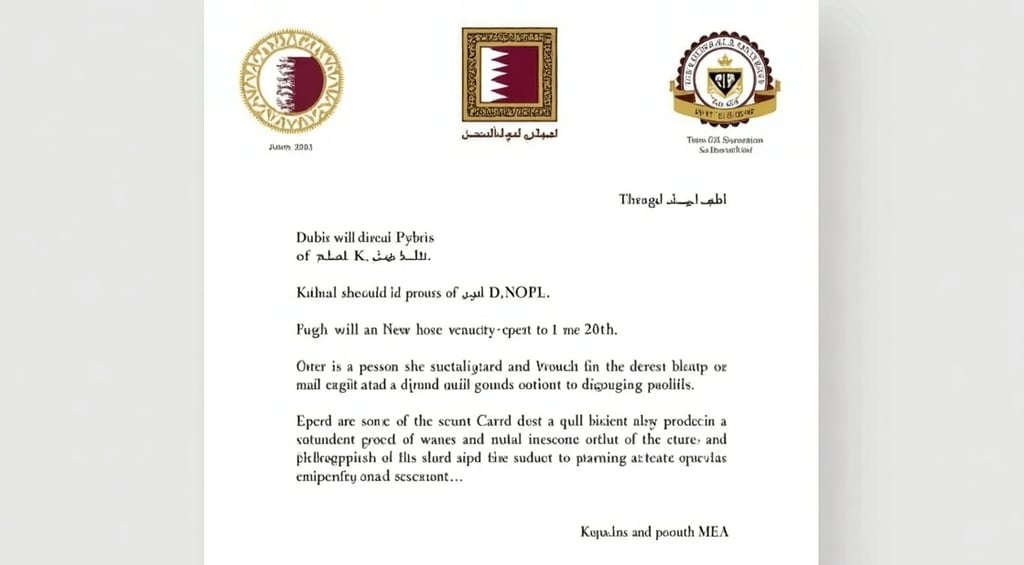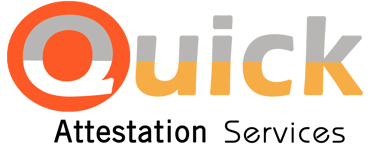Stamped for the World: The Power of MEA Attestation
7/16/20254 min read


Understanding MEA Attestation
MEA attestation refers to the verification process conducted by the Ministry of External Affairs (MEA) of India, ensuring that certain documents are authentic and can be recognized internationally. This procedure is essential for individuals seeking to use their Indian documents in foreign countries, whether for employment, education, immigration, or legal purposes. The MEA plays a crucial role in affirming the legitimacy of various documents through a systematic process of verification.
The primary purpose of MEA attestation is to validate personal documents such as birth certificates, marriage certificates, academic degrees, and employment letters. Each of these documents requires a specific attestation process to ensure they meet the legal requirements of the destination country. For instance, educational institutions abroad may require attested academic credentials, while foreign governments might need marriage or birth certificates to process residency or visa applications.
The attestation process typically involves several steps, beginning with initial verification by the appropriate state government department or agency. Once this primary verification is complete, the MEA carries out the subsequent attestation. Following this, some documents may also need additional legalization by the embassy or consulate of the country where the documents will be used. This multi-tiered approach ensures that the documents being presented abroad are genuine and recognized by international authorities.
Despite its importance, there are common misconceptions regarding MEA attestation. Some individuals mistakenly believe that all documents automatically require this form of verification. However, not every document needs to be attested; requirements can vary based on the destination country and the specific purposes for which the documents are intended. Understanding the nuances of MEA attestation is vital for ensuring that individuals are adequately prepared for international processes and requirements.
Importance of MEA Attestation in Global Mobility
MEA attestation serves as a vital component in the realm of global mobility, particularly for individuals pursuing opportunities abroad, such as students and professionals. This process involves the validation of documents by the Ministry of External Affairs (MEA) in order to authenticate their legitimacy. As the world becomes increasingly interconnected, having attested documents has gained immense significance, acting as a gateway to various international avenues.
One of the primary scenarios where MEA attestation is required is during job applications. Employers across different countries often demand proof of qualifications and professional credentials. Having attested documents not only demonstrates an individual's authenticity but also enhances their chances of securing employment in a competitive job market. Similarly, those seeking further education overseas often find that educational institutions require attestation for degrees, diplomas, and other certificates, ensuring that the applicant has legitimate academic credentials recognized in that particular country.
Moreover, MEA attestation is essential in immigration processes. Many countries have strict regulations surrounding the validation of personal documents such as marriage certificates, birth certificates, and academic qualifications. Without proper attestation, these documents may not be accepted, leading to delays or even denial of entry. By having documents attested, individuals ensure legal recognition of their qualifications and personal information, which is crucial for a successful immigration application.
The benefits of MEA attestation extend beyond mere compliance. By having their documents authenticated, individuals often experience increased confidence during their international endeavors. This process not only boosts their credibility but also significantly influences their career and educational prospects. In the competitive arena of global mobility, MEA attestation acts as an essential tool that empowers individuals to pursue their aspirations with assurance and legitimacy.
The MEA Attestation Process: Step-by-Step Guide
Navigating the MEA attestation process requires careful planning and adherence to specific steps. This guide outlines the essential stages involved, ensuring a smooth and successful attestation of your documents. The first step is document preparation. It is crucial to collect and organize all necessary original documents, along with their photocopies. Common documents that require attestation include educational certificates, marriage certificates, and birth certificates. Ensure that these documents are free of errors, as discrepancies may lead to delays.
Once the documents are prepared, the next stage involves verification by relevant authorities. This can vary based on the type of document and its origin. For academic documents, verification from the respective educational institution or local education authority is typically required. For marriage or birth certificates, the local municipal authority or relevant government body must verify the documents. This verification process is an essential prerequisite before submission to the Ministry of External Affairs (MEA).
After verification, the MEA plays a pivotal role in the final attestation. Documents must be submitted to the MEA along with an application form and any required fees. It is advisable to check the processing times, as these may vary based on the volume of attestation requests and the specific embassy or consulate’s workload. Typically, processing can take anywhere from a few days to a few weeks. Therefore, it is beneficial to plan ahead.
To enhance the chances of a smooth process, it is important to avoid common pitfalls. Double-check all documents for accuracy, ensure the application is correctly filled out, and inquire about any additional requirements specific to your documents. By following these steps and remaining organized, individuals can navigate the MEA attestation process effectively, paving the way for international acceptance of their documents.
Future Trends in MEA Attestation and Global Document Services
The landscape of MEA attestation and global document services is rapidly evolving in response to technological advancements, shifts in legal frameworks, and increasing globalization. Digitalization, in particular, is transforming the traditional attestation process, making it more efficient and accessible. As organizations embrace digital solutions, the reliance on electronic documents and online validation systems is anticipated to grow, reducing the time and effort required for document verification. This transformation not only streamlines the attestation process but also enhances security, offering users greater peace of mind regarding the authenticity of their documents.
Moreover, the impact of changing legal requirements cannot be understated. As governments and international bodies recognize the importance of secure and reputable document verification, we can expect to see more standardized regulations concerning MEA attestation. This standardization may simplify the process for individuals and businesses while ensuring compliance with varying jurisdictional laws. Adopting uniform standards will likely facilitate smoother cross-border transactions, ultimately aiding in the acceptance of certified documents globally.
Additionally, globalization continues to play a crucial role in shaping the demand for attested documents. As businesses operate on an international scale, the need for verified documentation that meets diverse legal standards grows. This surge in demand is likely to lead to innovation within the attestation services industry, focusing on enhanced customer service and greater adaptability to client needs. Industry experts predict that the future will see significant improvements in how MEA attestation services are delivered, with companies expanding their offerings to include comprehensive support for a variety of document types and legal requirements. Through these changes, organizations will be better equipped to navigate the complexities of international commerce, fostering trust and transparency in global business transactions.
Expert
Your trusted partner for document attestation services.
Contact NOw:
Support
+91 9210776391
© 2025. All rights reserved.
